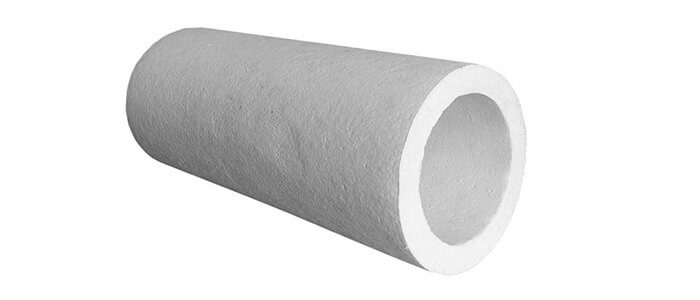In the ever-evolving landscape of materials engineering, fiber ceramic tubes have emerged as indispensable components, especially in the intricate realm of casting processes. Their unique properties and versatile applications make them a preferred choice for industries seeking tailored solutions that align with design specifications. This article delves into the uses of fiber ceramic tubes in casting and explores how customization based on design drawings has become a cornerstone of their application.
Understanding Fiber Ceramic Tubes:
Fiber ceramic tubes are lightweight, high-temperature-resistant components crafted from advanced ceramic fibers. These tubes exhibit exceptional thermal stability, mechanical strength, and resistance to harsh environments, making them ideal for applications in the casting industry. The fibers are often composed of materials like alumina, silica, or zirconia, offering a diverse range of thermal and mechanical properties.

Applications of Fiber Ceramic Tubes in Casting:
1. Thermal Insulation: Fiber tubes are renowned for their superior thermal insulation properties. In casting processes, where precise temperature control is paramount, these tubes act as efficient insulators. They shield the surroundings from extreme temperatures, ensuring that the casting material solidifies uniformly and prevents heat loss.
2. Mold Design and Core Production: The customization of ceramic tubes plays a pivotal role in mold design and core production. These tubes can be tailored to match intricate design drawings, allowing for the creation of precise and complex molds. The flexibility of customization ensures that the tubes seamlessly integrate into the casting process, enabling the production of intricate and highly detailed castings.
3. Molten Metal Transportation: Fiber ceramic tubes find applications in the transportation of molten metal within casting systems. Their high-temperature resistance and durability make them suitable for conveying molten metal from furnaces to casting molds. Customization ensures a perfect fit within the casting infrastructure, minimizing the risk of leaks or disruptions.
4. Thermo-Mechanical Stability: Casting processes often involve exposure to extreme thermal and mechanical stresses. Ceramic tubes provide exceptional thermo-mechanical stability, ensuring that they can withstand the demanding conditions of casting without compromising structural integrity. Customizing these tubes according to design specifications enhances their compatibility with specific casting environments.
Customization in Casting:
The customization of fiber ceramic tubes is a key factor in their widespread adoption in casting applications. Most casting processes require tailored solutions to accommodate unique design requirements. Manufacturers collaborate closely with design engineers to create ceramic tubes that precisely match the specifications outlined in design drawings. This level of customization ensures seamless integration into casting systems, promoting efficiency, and enhancing overall product quality.
Conclusion:
Fiber ceramic tubes have become indispensable in the realm of casting, offering a combination of thermal insulation, durability, and customization. The ability to tailor these tubes according to design drawings highlights their versatility and adaptability to the specific needs of various casting applications. As industries continue to push the boundaries of innovation, Ceramic tubes stand as a testament to the importance of customizable solutions in achieving precision and efficiency in casting processes.

